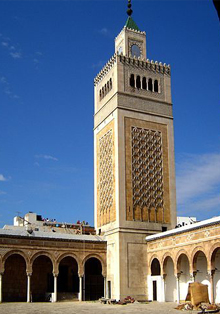On Thursday 13 January at 6 p.m., Casa Árabe will resume its programme of conferences with a round table discussion entitled Tunisia, adrift, with the participation of analysts Bernabé López García, Professor and Honorary Professor of Arab and Islamic Studies at the Autonomous University of Madrid, and Bosco Govantes, Professor of Political Science at the Pablo de Olavide University and expert on Tunisia at the Political and Electoral Observatory of the Arab and Muslim World (OPEMAM).
For many analysts, Kais Saied, elected president in 2019, is the populist leader who suspended Tunisia’s parliament in July 2021 and said he would rule by decree, in a coup that enjoyed widespread public support. Until Saied’s coup, Tunisia was seen as the only example of a successful democratic transition among the Arab countries that rose up in 2011. According to polls, Tunisians, weary of years of political dysfunction under a series of weak coalition governments, overwhelmingly support it.
However, the president’s divisive rhetoric has created a palpable atmosphere of intimidation. After five months of speculation, in December 2021 President Saied finally spelled out his plan for constitutional reform, pledging to hold a referendum in July to vote on a new constitution. While much of the president’s energy remains invested in political reform, no answer to the chronic economic problems that corrode daily life seems to be in sight. Critics fear he is leading the country into uncharted territory and a return to dictatorship.






